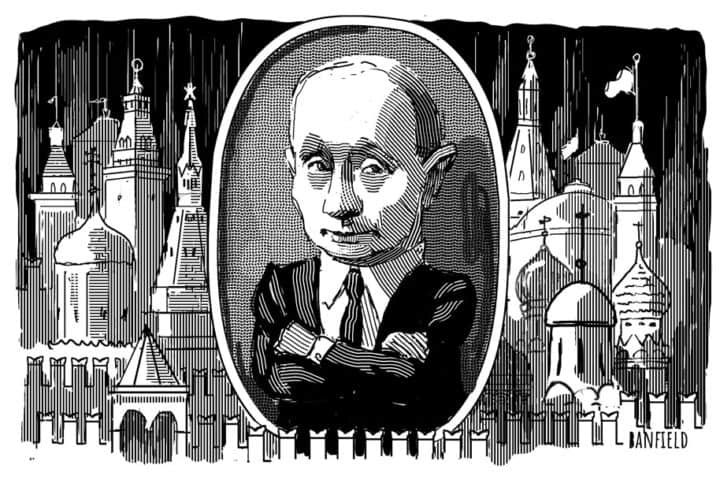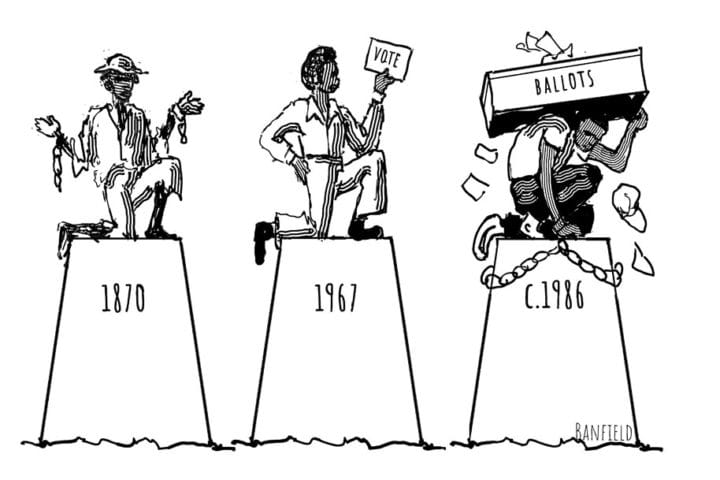Book Reviewed
In what he describes as an explanation rather than a lament or polemic, Carl Trueman sets out to identify the intellectual architects of our Strange New World. As the subtitle indicates, the book is a story of How Thinkers and Activists Redefined Identity and Sparked the Sexual Revolution—how the road to our current world of sexual confusion and identity politics was paved by philosophers, psychologists, and polemicists. As a social scientist, I consider it critically necessary to understand why regular people believe and act as they do. This book helps.
A professor of Biblical and religious studies at Grove City College, Trueman has become something of a niche celebrity. He rose to prominence when the journalist Rod Dreher encouraged him to write what developed into The Rise and Triumph of the Modern Self (2020). Dreher attained his own devoted following after calling upon traditional Christians to get serious about surviving in a post-Christian West in The Benedict Option (2017). He recognized Trueman’s rare ability to convey, in intellectually rigorous yet compelling prose, how and why modern society was contorted into its present form. The Rise and Triumph of the Modern Self was a tour de force and a popular success. It helped many readers to articulate what they sensed but could not explain: that our present decadence is not a natural development of Western thought, but a perversion whose history can be traced. It is the kind of book that young conservatives, especially religious ones, pass around in excitement to their friends—here at last is someone who can put into words what they have been discussing and suspecting for years. To help broaden that reach, Ryan Anderson, president of the Ethics and Public Policy Center, encouraged Trueman to create a shorter and more accessible version. The result is Strange New World.
Trueman’s focus is on the intellectual roots of the sexual revolution. He traces a map of ideas from Jean-Jacques Rousseau and the Romantics, through Karl Marx, Friedrich Nietzsche, and Sigmund Freud, up to Freud’s Marxist disciple Wilhelm Reich. Freud envisioned the human person as a tangle of inchoate and inarticulate longings to be shaped and sublimated into a socially adjusted citizen. But Marx understood bourgeois society itself as an arbitrary and historically contingent exercise of power, rather than a reflection of immutable human nature. Nietzsche compounded this perception by portraying traditional values as sterile and hypocritical. These disparate lines of thought, fusing and transforming in the hands of later inheritors, combined to create a widespread conviction that “inner feelings,” in particular sexual ones, form the core of the authentic self. And so, writes Trueman, “sexual desire has emerged in the last one hundred years as a primary category for understanding our identity.” Sexuality and sexual identity now have unprecedented personal and political authority.
Drawing on the work of more than a few sociologists—starting with the classic account of expressive individualism in Habits of the Heart (1985) by Robert Bellah and his coauthors—Trueman describes in detail how the assertions and behaviors of elites make their way down to the common person. His intellectual history comprises not just a series of abstractions bandied about in ivory towers, but an explanation of how the masses came to think and act as they do today. For instance, Vice magazine recently reported on a curious trend called “radical monogamy,” in which young people are rediscovering sexual fidelity—but not as the self-evident good that has fostered stable families and productive economies for many generations. Rather, monogamy is now one among an endless range of sexual lifestyle options. Thus what was once considered hopelessly stodgy has been rebranded as the product of an independent choice, intentionally sought out by its participants. Radical monogamy may look like marriage, and it will certainly act like marriage. But it is chosen, freely and without constraint, by expressive individualists from among morally equivalent alternatives. Radical monogamy is understood to be authentic in a way in which my marriage, for example, is not—given that I grew up embedded in an educational and religious community where marriage was common and encouraged. I failed to reject external expectations, thus compromising my authentic, inner sexual nature. So, my monogamy isn’t as radical as it could be.
* * *
This kind of thinking has become so pervasive that its history is almost invisible: although most of my students have not read Nietzsche, they nevertheless feel the full force of his injunction to “shatter the moral codes that hinder individuals,” as Trueman puts it. Young people are coming of age in a world almost completely remade by ethical iconoclasts: “Sexual codes,” writes Trueman, “are now the material of political policy making in a way that the average Westerner in 1950 would have found incomprehensible, let alone the denizen of the world of Paris, Mark Anthony, or Henry VIII.” My students never knew the old world, so they find it difficult to conceive of a remedy for the chaos and upheaval that dominate their experience. I don’t blame them for being anxious and depressed. I might be too if I were in their shoes.
The pressure to define oneself in sexual terms has created what sociologist Margaret Archer called “burdens of conformity”—the need to find a home for oneself in a world where it is no longer enough to be, say, an Irish Catholic or a Sephardic Jew. As Trueman writes, “In biblical times or in ancient Greece, sex was regarded as something that human beings did; today it is considered to be something vital to who human beings are.” But desire is malleable and famously inconstant. The new term “pansexual” illuminates the confusion that results from defining oneself in terms of one’s passions. Pansexuals aren’t bisexual, at least in their own understanding, because bisexuality involves attractions to men and women (in general), while pansexual desire is person-specific, regardless of sexual orientation or gender identity. The pansexual is totally unmoored from every sexual constraint except that of attraction to any given individual in any given moment—whether male, female, or something else. Suffice it to say that this does not conduce to a stable or virtuous life. Desire alone cannot instruct us in how we ought to live (or how to avoid creating catastrophes).
* * *
As I argued in Cheap Sex (2017), our forebears managed to constrain and channel their sexual impulses without denying or repressing them. They incorporated their sex lives into a larger tapestry of cultural and spiritual practice. But today, instead of using their sexual powers to create new human beings, or even bond with one another, young people are using them to define and redefine themselves. This development, of course, is even more fundamental (and destructive) than a shift in language about monogamy. As writer Anna Mussmann put it in her essay “Death Doesn’t Care if You’re Sexy” for the Federalist (October 2013), “Modern sex is not supposed to be part of the same cycle as aging and death.” Trueman offers a fascinating account of how technology has been essential to disentangling sex from the other commitments and obligations of life. From contraceptives and sex-change surgeries to the disorienting iconoclasm of the internet, technology creates a world of endless possibility in which appeals to eternal and transcendent order fall flat. Following the late sociologist Philip Rieff, Trueman discerns an “unprecedented and highly volatile situation: our cultures must now justify themselves purely on the basis of themselves.” Invoking anything other than a present-time interpretation using contemporary tools is suspect. We will brook no constraints. And yet most of us recognize, even if by trial and error, that constraint is what orders life, and discipline is what fosters happiness.
Modern sexual logic can seem inscrutable, but it reveals itself in everyday situations if you have eyes to see and ears to hear. For instance, if you disagree that a man can actually become a woman (or that humans can be neither or both), you may be called hateful and told that you wish to “erase” some individual or group. This can seem disorienting, as if your accuser is overreacting or arguing in bad faith. After all, you don’t hate anyone, as you understand the term. But following the new logic illuminates the situation. If sexual feelings are the bedrock of personhood, then to question someone’s sexual self-understanding is to deny his or her very self. This is interpreted as violence. The old Cartesian dualism—“I think, therefore I am”—is thus inverted into something very different—“If anyone balks at how I think I am, therefore I am not.” This “unencumbered self” is a heavy burden to bear. When the self is “plastic,” Trueman observes, the world seems “liquid,” and there’s just no firm ground upon which to build an identity. The hysteria of our young interlocutors becomes less baffling and more pitiable, though no more persuasive, when we grasp its history and logic.
* * *
By recovering a true anthropology, we can begin to clothe the self in the dignity of reality once more. And that starts with us. For, in many ways, we too have been stripped and misshapen by modern sensibilities. The sexual revolution has unclothed and exposed us all. Trueman’s first practical recommendation, therefore, is to look for the plank in our own eyes. The “social imaginary” he describes is the air we have all breathed and the sun we have soaked in for much if not all of our lives. Our churches are affected by it as well. How are we complicit? How have we personally absorbed and practiced these false notions of the self? How many of us privately accommodate the sexual revolution when convenient? For example, many churches have meekly accepted no-fault divorce to the detriment of us all, making us free-market consumers in our own marriages. Trueman notes a similar effect on our religious commitments: we are as much customers as congregants, abandoning houses of worship as soon as we find a pastor or priest we like better. We can’t build deep community if we’re ready to leave our marriage or our church whenever the grass looks greener elsewhere.
More than ever, conservatives—especially Christian conservatives—are sojourners and strangers in a strange land. Here’s a worthy handbook, one that offers a map and hope. Its insights can lead to both serenity and action. Serenity is the product of understanding the strange new world and overcoming our bewilderment at it. But from that place of deeper composure, strategic action can follow. Will it?




